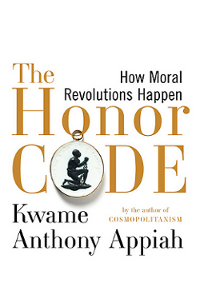Every once in a while, a moral revolution takes place, and practices that were once considered ordinary, uncontroversial, or even honorable, come to be seen as reprehensible. Slavery is a classic example. Here’s a summary of that moral revolution from Adam Hochschild:
[P]icture the world as it existed in . Well over three-quarters of the people on earth are in bondage of one land or another. In parts of the Americas, slaves far outnumber free people. African slaves are also scattered widely through much of the Islamic world. Slavery is routine in most of Africa itself. In India and other parts of Asia, some people are outright slaves, others in debt bondage that ties them to a particular landlord as harshly as any slave to a Southern plantation owner. In Russia the majority of the population are serfs. Nowhere is slavery more firmly rooted than in Britain’s overseas empire, where some half-million slaves are being systematically worked to an early death growing West Indian sugar. Caribbean slave-plantation fortunes underlie many a powerful dynasty… One of the most prosperous sugar plantations on Barbados is owned by the Church of England. Furthermore, Britain’s ships dominate the slave trade, delivering tens of thousands of chained captives each year to French, Dutch, Spanish, and Portuguese colonies as well as to its own.
If you had proposed, in the London of early , to change all of this, nine out of ten people would have laughed you off as a crackpot. The 10th might have admitted that slavery was unpleasant but said that to end it would wreck the British Empire’s economy. It would be as if, today, you maintained that the automobile must go. One in ten listeners might agree that the world would be better off if we traveled instead by foot, bicycle, electric train, or trolley, but are you suggesting a political movement to ban cars? Come on, be serious! Looking back, however, what is even more surprising than slavery’s scope is how swiftly it died. By the end of the 19th century, slavery was, at least on paper, outlawed almost everywhere.
How do such magnificent moral revolutions happen? Kwame Anthony Appiah thinks it has to do with changing definitions of honor, and he’s written a book, The Honor Code: How Moral Revolutions Happen to present this idea.
Appiah looks at three such moral revolutions: the abolition of the enslavement of Africans in the British empire, the end of duelling among British gentlemen, and the end of foot-binding of upper-class Chinese women. And he looks at one that’s in-progress or at least impatiently awaited: the end of “honor killings” of women in Pakistan and other parts of that region.
In each case, he shows that ideas of honor were core parts of the ideology that supported the practice in question, and that these ideas shifted over time so that honor became instead identified with the abolition of the practice.
He further asserts that this shift of the understanding of honor was at the core of the moral revolution and that it was the driving force behind making the moral revolution happen.
To me, though, it seemed that Appiah was not able to give these last two points sufficient support. That these moral revolutions were accompanied by a shift in how honor was correlated with the practices being revolutionized is kind of interesting, but also almost tautological. That this shift preceded or drove the moral revolution rather than just accompanied or was the result of it is a much more interesting thesis but requires more evidence than Appiah provides to be convincing.
I’m sympathetic to this idea and think it has promise, and I like Appiah’s work and his focus (see also my brief review of his Experiments in Ethics a few years back). I hope he continues to pursue his quest for what makes moral revolutions happen and comes up with something more rigorous.
I’m also curious about what causes revolutionary moral backslidings, in which formerly-reprehensible acts like murder (e.g. Nazi Germany) or torture (e.g. contemporary United States) gain or regain respectability. Also, what of moral revolutions that aren’t so magnificent (temperance/prohibition in the United States, the Islamic Revolution in Iran, the Cultural Revolution in China) — what distinguishes these from the ones that are on-track? is there a way to know ahead of time? are there ways to keep moral revolutions from going astray?

